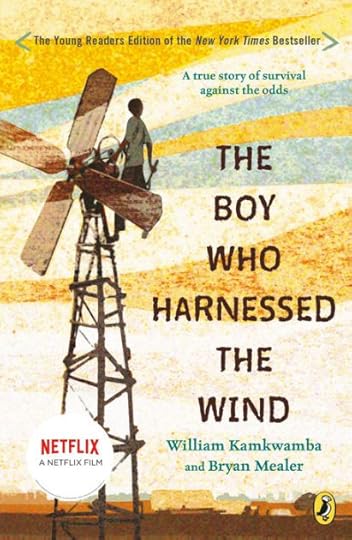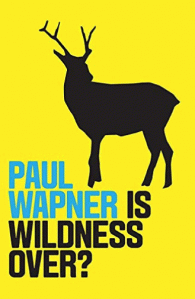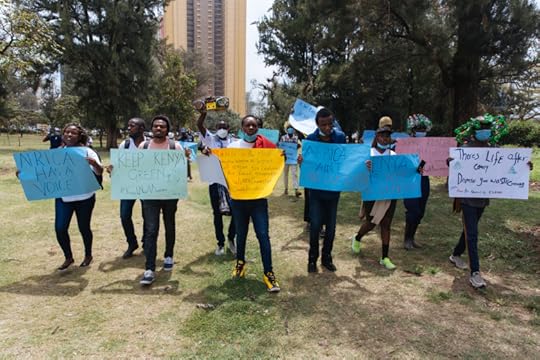Jeremy Williams's Blog, page 106
October 12, 2020
Book review: The Boy Who Harnessed the Wind
 Back in 2007 when this blog was young, I wrote about William Kamkwamba and his DIY wind turbine as an example of appropriate technology. Since then the story has been published as a biography, and then turned into a rather good movie directed by Chiwetel Ejiofor.
Back in 2007 when this blog was young, I wrote about William Kamkwamba and his DIY wind turbine as an example of appropriate technology. Since then the story has been published as a biography, and then turned into a rather good movie directed by Chiwetel Ejiofor.
I hadn’t actually read the whole story for myself, but I noticed that there’s a Young Readers edition and I bought it to read to the kids. So this has been our bedtime reading for the last couple of weeks, and they have loved it.
The bo...
October 10, 2020
What we learned this week
The Guardian continues to evolve its response to the climate emergency, and this week published a climate change dashboard.
At their annual conference, Britain’s Liberal Democrat party voted to back a Universal Basic Income. The Lib Dems are not the force they were, but it marks another step towards the mainstream for Basic Income. (The Green Party also supports BI)
Governments resist them, campaigners often demand them without necessarily thinking it through, so it’s useful to The Economist’...
October 9, 2020
Why the Coronavirus won’t be the moment of peak commute
It’s been a few years now, but I have stood among the commuters on the platform at Luton station. I travelled into the office in London a couple of days a week for several years. Before that I took the bus to work, like millions of other Londoners. It was the most normal thing in the world.
The current crisis has changed people’s daily habits in many ways, including the commute. And in future, it may not be quite so normal. More people than ever before are working from home – as much as 60% ...
October 8, 2020
Twin your bin to fight global waste
Last week two Kenyan activists wrote on the blog about how waste laws in Kenya are under threat from a new trade deal. The country has some of the most robust bans on single use plastics, and this is of course a threat to the plastics industry. Lobbyists in the US are trying to use the trade deal to kick those new restrictions down and sell more plastic.
Another story from recent days is Sri Lanka sending back 21 containers of waste that Britain had shipped to the country. Mislabelled and fu...
October 7, 2020
The day the Tories discovered wind power
Yesterday Prime Minister Boris Johnson gave his speech to the Conservative Party Conference, a somewhat muted affair given the lack of audience. The speech, which you can read in full here, is more characteristically Johnson than most of his recent official pronouncements. It’s funny, optimistic and jingoistic, if that’s the sort of thing you look for in a politician – and apparently British voters do or Boris Johnson wouldn’t have a career.
It has some awkward moments too. “We believe in ou...
October 6, 2020
The Climate Assembly’s principles for net zero
Last month Britain’s Climate Assembly delivered its report, after a Covid-interrupted series of discussion weekends. The full report contains a series of potential policies across several different sectors. These policies are prefaced by a set of principles.
These are the principles that should guide the country’s approach to net zero carbon, and they’re useful because they’re from ordinary citizens. It’s not a political party with an ideological bias towards one sort of solution or another...
October 5, 2020
Book review: Is Wildness Over? by Paul Wapner
 There are a variety of books lamenting the decline of wild spaces, or looking at nature disconnection. Lucy Jones’ Losing Eden is one of the more recent. The title of this book suggests something along those lines, but Paul Wapner’s answer is unexpected.
There are a variety of books lamenting the decline of wild spaces, or looking at nature disconnection. Lucy Jones’ Losing Eden is one of the more recent. The title of this book suggests something along those lines, but Paul Wapner’s answer is unexpected.
Wildness is not over, he argues. It is displaced.
By wildness, Wapner means unpredictability and lack of control. Much of the history of progress is about taming wildness, making life more stable, more comfortable. It has been about insulating a...
October 3, 2020
What we learned this week
Re:Tuna, the Swedish mall for secondhand goods, has a new shop: Ikea. The pilot store will sell refurbished products and is part of Ikea’s plans to support a circular economy.
Here’s something that’s been a long time coming: the world’s first and only certified flushable sanitary pads were launched this week by Planera. Where most pads are 90% plastic, these are fully biodegradeable.
A lot of NGOs don’t do any kind of aftercare on their schemes, so SolarAid are a good example of doing things wel...
October 1, 2020
Africa is not a dumpster
Guest post from the Kenya Environmental Activists Network. Adapted with permission from the open letter by Ms Passy Amayo and Mr Kaluki Paul Mutuku.
 We write from Kenya in solidarity with our peers across the globe to demand urgent action to tackle the climate and environmental crises, and joined the Global Climate Strike on Friday 25 September 2020.
We write from Kenya in solidarity with our peers across the globe to demand urgent action to tackle the climate and environmental crises, and joined the Global Climate Strike on Friday 25 September 2020.
It has come to our attention that the American Chemistry Council wants the upcoming US-Kenya Trade deal to allow the export of American plastics to...
September 30, 2020
The Doughnut Economics Action Lab
Doughnut Economics, as you may well know by now, is a concept developed by Kate Raworth and explored in detail in her book of the same name.
She suggests that progress has an outer edge of natural thresholds that shouldn’t be exceeded – things like climate change and biodiversity loss. It also has an inner edge of social thresholds that communities shouldn’t fall below – like healthcare and education. A safe and just space for humanity lies between these two edges, making a ring shape.
It’s a ve...



